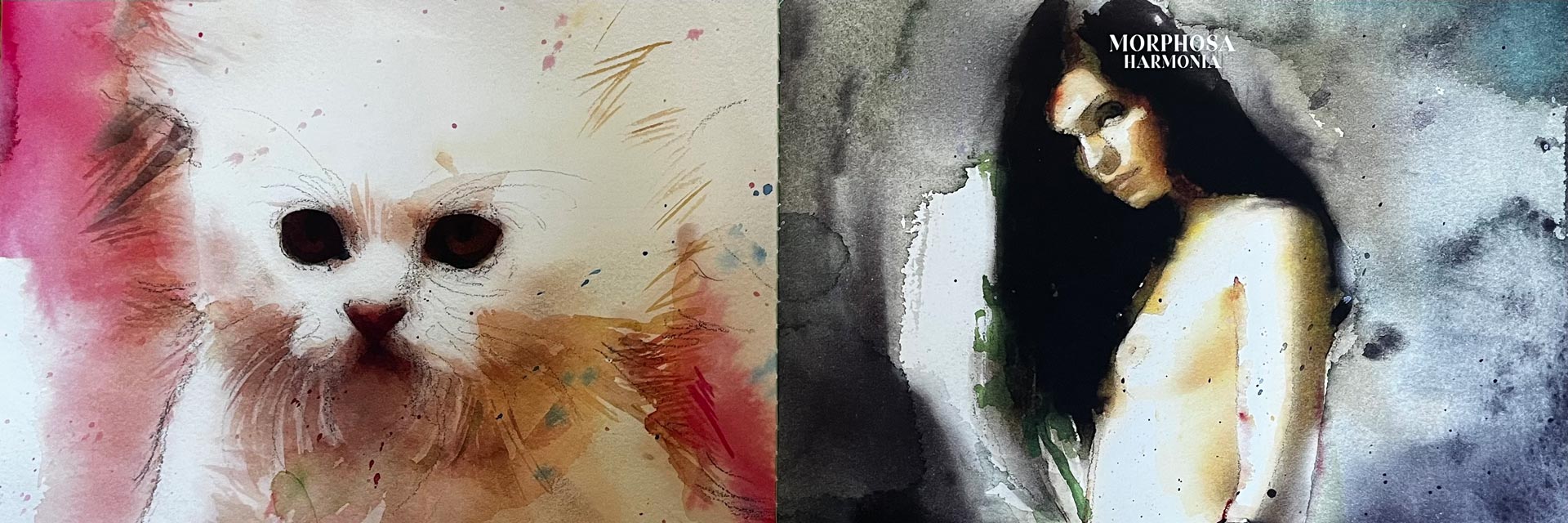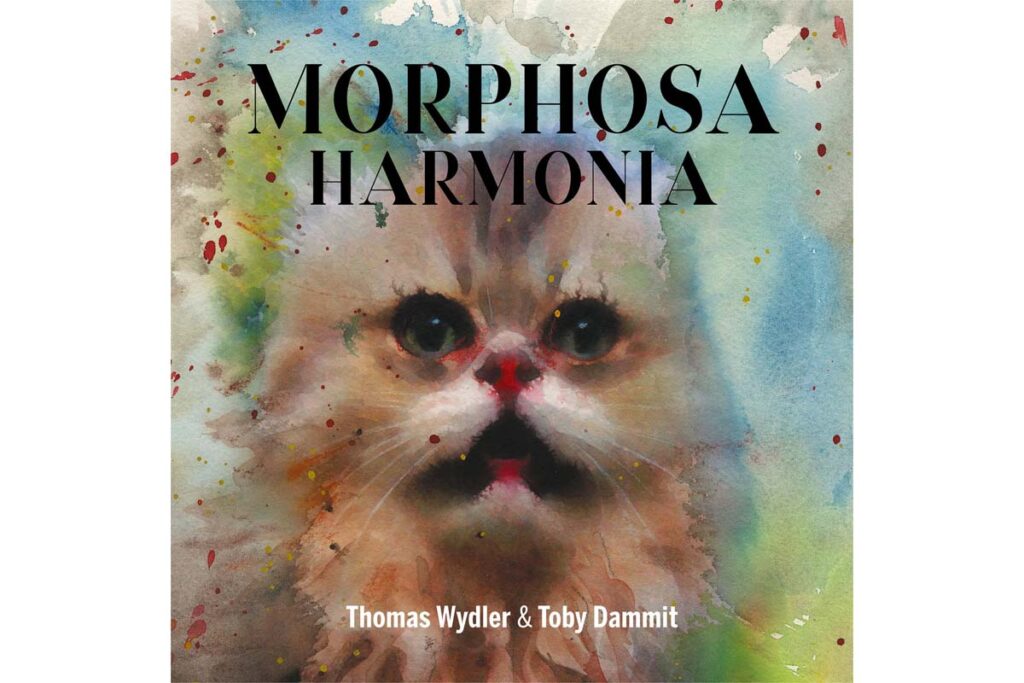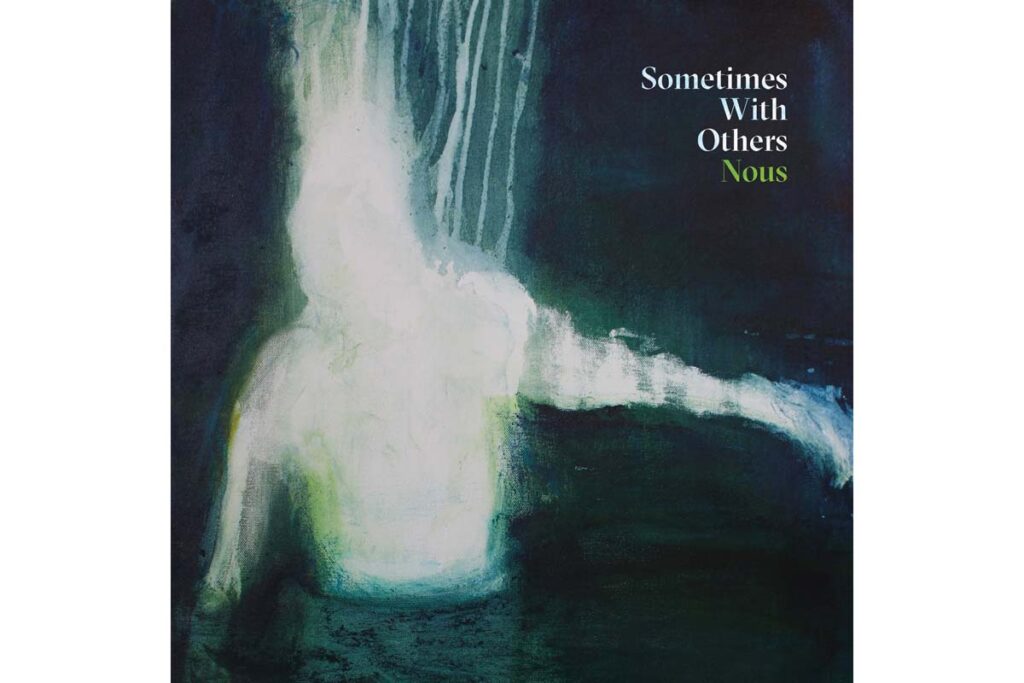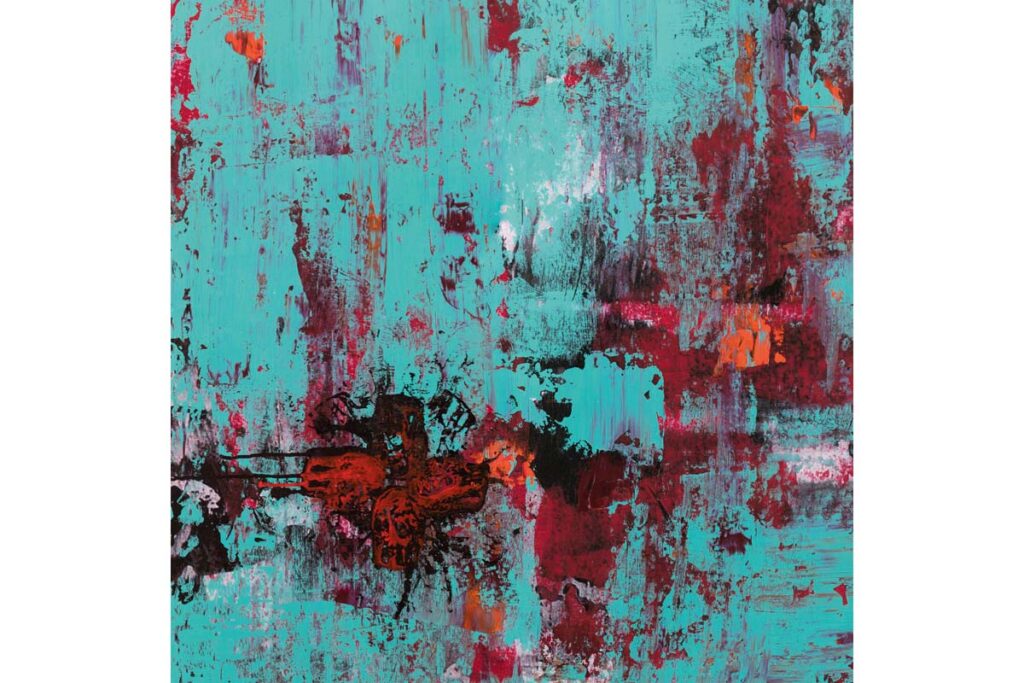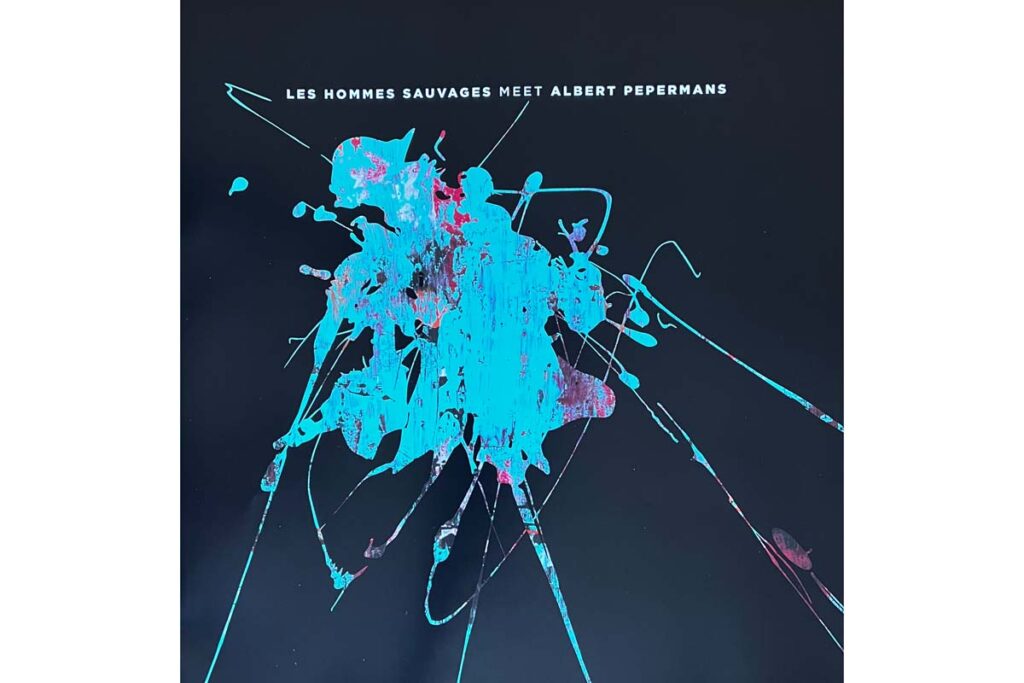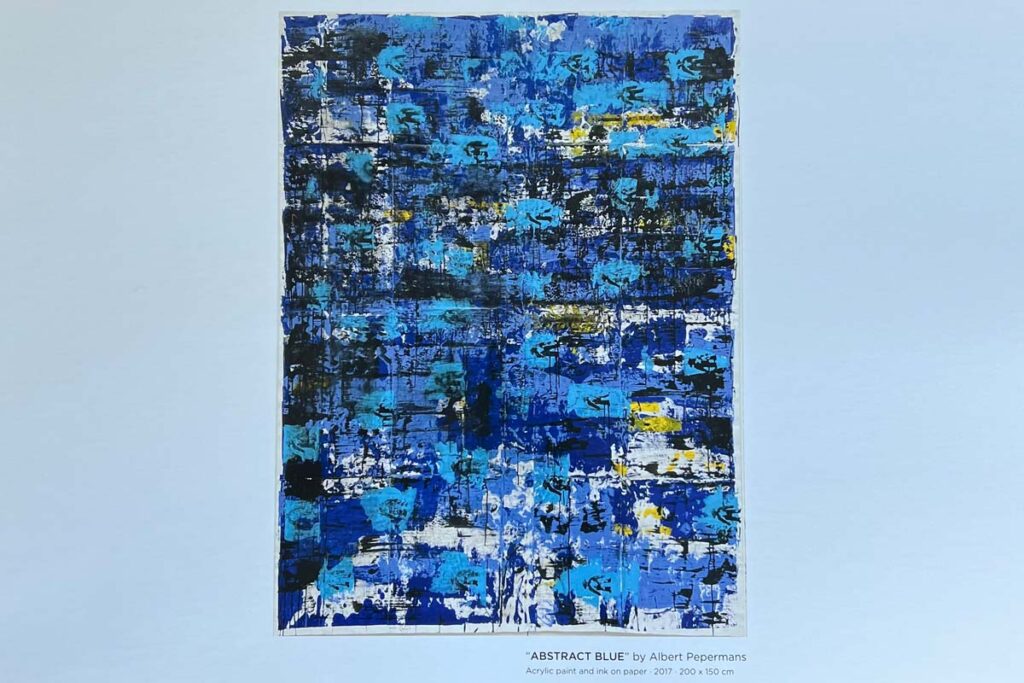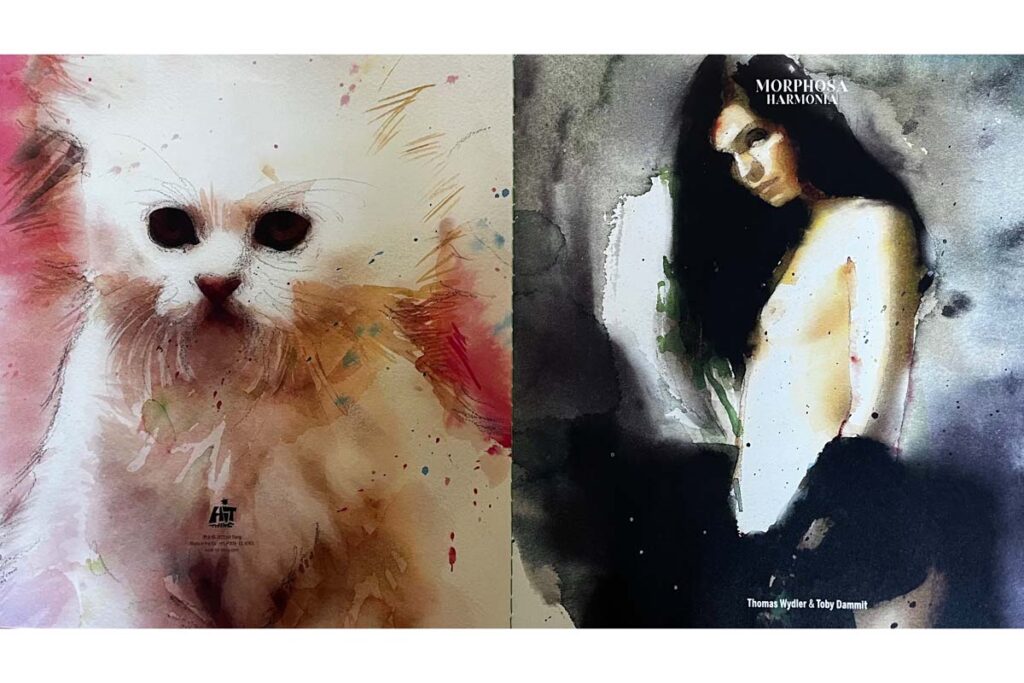The Grand Chess label is not only dedicated to music.
Berlin Gallery Weekend 2023: At a joint vernissage by Berlin artists Tina Berning and Julio Rondo with Belgian painter Albert Pepermans, the venue is suddenly filled with irritating psychedelic guitar sounds. The Hamburg record label Grand Chess has invited guests to a musical intermezzo and is presenting a series of high-quality vinyl productions with a striking look, including covers designed by Albert Pepermans, who is also present. Curious, the reviewer of these lines gets into conversation with Guido Randzio, one of the label’s two operators, and it quickly becomes clear that the label’s productions fit in perfectly with the philosophy of our Vinyl-Corner: Musical quality meets high-quality vinyl, and the production contains that certain something extra giving the LPs their obvious unique selling point. In addition to a high-quality production process at Optimal Records, the not quite everyday music of the Residents, sound constructs from the environment of Nick Cave’s band The Bad Seeds, musicians from the Berlin indie scene of the 90s and early 2000s around the groups Die Haut and Einstürzende Neubauten, there is the cooperation with top-class visual artists represented by internationally renowned galleries such as Eigen&Art.
There are often personal connections between the musicians and the artists, which unite here to form a cooperation initiated by the label. For example, the renowned painter Martin Eder and Thomas Wydler and Toby Dammit, who are represented by The Bad Seeds, have known each other since 2002. In this case, the album Morphosa Harmonia, which was previously only available on CD, has been re-released as a high-quality vinyl box and contains a booklet produced in special print quality with all the paintings that Eder created for this album at the time.
The special highlight, however, is that there are special “gallery editions” for most of the label’s releases, which can be purchased either directly from the label or at art events organized by renowned galleries. In the case of Morphosa Harmonia, this is a signed and numbered special print of a work by Martin Eder in a very small edition of 25 copies, which the artist has made available to the label. This is a de facto patronage of the label, which uses the income from art sales to finance vinyl production, as artists and galleries waive their royalties. But even those who only buy the “normal” releases are rewarded with exquisite artistic additions and prints, even if they lack the personal signature and the aura of a low two-digit small edition, which does not diminish the musical and artistic quality of the overall package purchased. In addition, the standard editions are sold via the well-known vinyl dealers on the market and do not have to be handled by the label or galleries. To understand the musical orientation of the label, it is worth taking a look at the anthology of the legendary Berlin underground band Les Hommes Sauvages. The box set not only includes the band’s three LPs, which have long been out of print, but these treasures are accompanied by a lavish 16-page booklet and four high-quality prints of the artwork designed by Albert Pepermans. Les Hommes Sauvages consisted of guitarist, songwriter and singer Kristof Hahn (known from Pere Ubu) and singer and songwriter Viola Limpet (Tumbling Hearts). These albums were created in collaboration with musicians such as Thomas Wydler (Bad Seeds, Die Haut), Toby Dammit (Iggy Pop, Bad Seeds) and last but not least Bela B. (Die Ärzte). Here, French chanson, German electronics, British punk/post-punk meet rock’n’roll and the atmosphere of noir films. But it is the collaboration with Albert Pepermans, animated by Grand Chess, that makes this release a work of art on every level.
But who is behind this unconventional label? To understand this, you have to travel back in time a little. The band Steely Dan was accused of having copied the striking piano bass line of their hit “Rikki Don’t Lose That Number” from Horace Silver’s “Song For My Father”. In the 1980s, this controversy gave a Hamburg law professor the idea of starting a debate about copyright infringement in music. While the discussion raged among the students in the lecture hall, two faces stood out. Carsten Hess and Guido Randzio, previously strangers, found themselves disinterested in the talkative commotion. A brief exchange of glances and two like-minded people had found each other, although their personalities were at odds: Carsten Hess, who had grown up in middle-class Hamburg circles and carried a broad spectrum of knowledge about art and jazz, and the dynamic Guido Randzio, who was influenced by punk and underground culture and had already made his way through Hamburg’s streets on his own at an early age. In 2019, after more than 30 years since their first meeting in the lecture hall, the time had come to officially join forces. Both made their long-cherished dream come true and founded the record label Grand Chess Records, which is decisively shaped by the owners’ personal connections: Carsten Hess curates the artistic and visual aspect of the releases through his contacts, while Guido Randzio uses his many years of activity in the music scene to acquire musicians. Both have succeeded in founding a small, fine label beyond the mainstream that every vinyl connoisseur should know.
Grand Chess
Arts & Entertainment UG
Budapester Straße 40
20359 Hamburg
info@grand-chess.com
The Most Notable Releases
The Residents, Duck Stab! Alive!
Thomas Wydler & Toby Dammit, Morphosa Harmonia
Les Hommes Sauvages Meet Albert Pepermans, Anthology
Sometimes With Others, Nous

